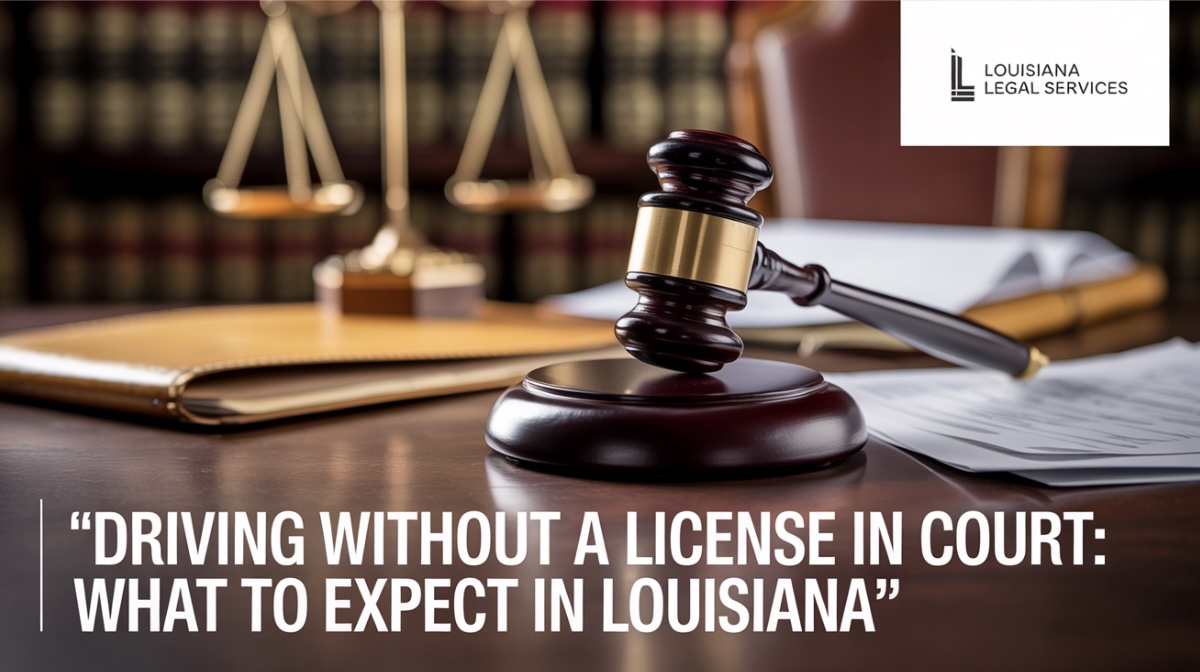Oct 01 (News On Japan) - Getting stopped by police and charged with driving without a license can feel overwhelming.

For many Louisiana drivers, the fear doesn’t stop at the traffic stop—it continues when you receive a court date. If this is your first time dealing with the justice system, you might be asking: What exactly happens in court after a charge like this?
Understanding the court process for unlicensed driving Louisiana cases can ease your stress and help you prepare for what comes next. Whether your license was suspended, revoked, expired, or you never had one, the steps in court are often the same. And the truth is, having a knowledgeable lawyer on your side can make all the difference.
Step 1: Receiving the Court Date
When you’re ticketed or arrested for driving without a license, the police will either release you with a citation or, in more serious situations, bring you to jail for booking. Either way, you’ll be given a court date. Missing this date can make your situation much worse, potentially leading to additional fines or even a warrant for your arrest.
The first and most important step is to mark your calendar and take the date seriously. This isn’t like a regular traffic ticket—it’s considered a criminal charge in Louisiana.
Step 2: The Arraignment
Your first appearance in court is usually called the arraignment. During this hearing:
- The judge will explain the charges against you.
- You’ll be asked to enter a plea—guilty, not guilty, or no contest.
- The judge may set bail conditions if you were arrested.
This is also where your Louisiana driving without license attorney can step in to start protecting your rights. They can advise you on the smartest plea to enter, depending on your circumstances and whether you have prior offenses.
Step 3: The Pre-Trial Phase
After the arraignment, your case moves into the pre-trial stage. This part of the process allows your lawyer to gather evidence, negotiate with prosecutors, and look for weaknesses in the case. For example:
- Was your license actually suspended, or was there a clerical mistake?
- Did the officer follow the proper procedures during the stop?
- Can your charges be reduced to a lesser offense?
During this time, your lawyer may be able to arrange a plea deal. For some drivers, this means avoiding jail time or reducing the charge to something less damaging on your record.
Step 4: The Trial (If Needed)
If no agreement is reached, your case goes to trial. At trial:
- The prosecutor presents evidence against you.
- Your lawyer challenges that evidence and presents your side.
- A judge (or sometimes a jury) decides whether you’re guilty or not guilty.
Driving without a license might sound like a small matter, but in Louisiana, judges treat it as a real offense. If convicted, you could face fines, probation, and possibly jail time—especially if this is a repeat violation.
Step 5: Sentencing
If you plead guilty or are found guilty at trial, the judge will move on to sentencing. Penalties vary depending on your situation:
- First offense: Smaller fines, possible probation, and instructions to correct the licensing issue.
- Repeat offense: Much harsher penalties, higher fines, longer probation, and the real possibility of jail.
The court will also look at the reason for the violation. Driving on a suspended or revoked license is treated much more seriously than simply forgetting your license at home.
Why Legal Representation Matters
Throughout every step of this process, having a defense lawyer is crucial. Without legal help, you may feel pressured to plead guilty right away, not realizing how that decision will affect your record and future.
A skilled attorney can:
- Explain the charges in plain language.
- Represent you at the arraignment, reducing your stress.
- Negotiate with prosecutors for a lesser charge.
- Build a defense if your case goes to trial.
Working with an experienced Louisiana driving without license attorney can mean the difference between walking away with a fine and carrying a criminal record that follows you for years.
The Long-Term Consequences
Court isn’t just about the immediate fines and penalties. A conviction for unlicensed driving can:
- Show up on background checks.
- Affect your ability to get certain jobs.
- Increase your insurance rates.
- Make future charges more serious if you’re caught again.
That’s why handling your first court appearance the right way is so important. You don’t want one mistake to snowball into lasting consequences.
How to Prepare Before Court
Here are some tips if you’re facing an upcoming court date:
- Hire a lawyer early – Don’t wait until the last minute. The sooner your lawyer is involved, the better they can help.
- Gather documents – If your license was recently renewed or reinstated, bring proof.
- Dress respectfully – Courts take appearance seriously. Dressing neatly shows respect for the process.
- Arrive on time – Being late for court can reflect badly and may even cause additional problems.
- Follow your lawyer’s advice – They understand the system and can guide you on how to respond to questions.
Final Thoughts
Facing the court process for unlicensed driving Louisiana can feel intimidating, but knowing the steps helps you stay prepared. From the arraignment to sentencing, each stage offers opportunities for your lawyer to protect your rights and minimize the damage.
Instead of walking into court alone, work with a trusted Louisiana driving without license attorney who understands the system and knows how to fight for you. With the right legal support, you can move past this charge and get back on track.















